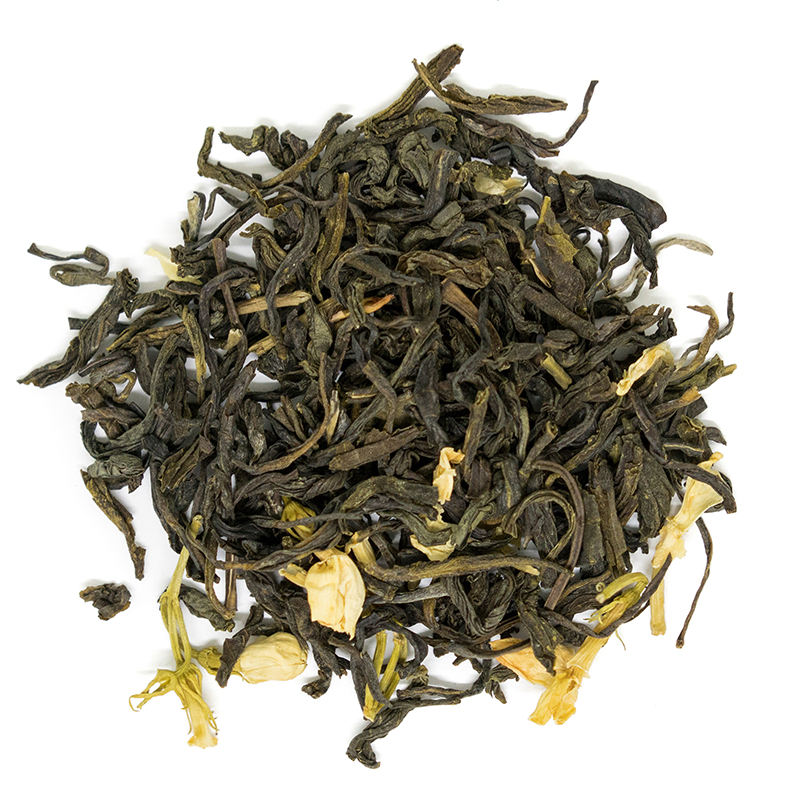-
Description
-
Ingredients
-
Uses
-
Recipes & Posts
| SKU | Unit Size |
|---|---|
| 24192 | 3 x 100 g |
-
Description
-
Ingredients
-
Uses
-
Recipes & Posts
-
Tea Leaves: The base of jasmine tea is typically green tea leaves, although occasionally white or black tea leaves may be used. Green tea leaves are commonly used due to their delicate flavor and ability to absorb the fragrance of jasmine flowers.
Jasmine Flowers: Jasmine flowers are added to the tea leaves during processing to impart their fragrance and flavor. The flowers are typically harvested in the early morning when their scent is the strongest and then mixed with the tea leaves. The tea leaves absorb the aroma of the jasmine flowers during the drying process, resulting in the characteristic floral scent of jasmine tea. -
Relaxation and Stress Relief: Jasmine tea is often consumed for its calming properties. The soothing aroma and light flavor can help promote relaxation and reduce stress levels.
Digestive Aid: Some people drink jasmine tea after meals to aid digestion. The gentle warmth and herbal properties of jasmine tea may help alleviate digestive discomfort and promote healthy digestion.
Skincare: Jasmine tea can be used topically as part of a skincare routine. Its antioxidant properties may help protect the skin from environmental damage and promote a youthful complexion. Some people also use jasmine tea as a facial toner or in DIY face masks.
Aromatherapy: The fragrant aroma of jasmine tea can be used for aromatherapy purposes. Simply steep the tea and inhale the aroma to promote relaxation and uplift the mood. Jasmine tea can also be used to scent rooms or linens.
Flavoring Agent: Jasmine tea can be used as a flavoring agent in various recipes. It can be added to desserts such as cakes, cookies, and ice cream to impart a subtle floral flavor. Jasmine tea can also be used to infuse flavor into sauces, marinades, and cocktails.
Gift Giving: Jasmine tea is often given as a gift due to its pleasant aroma and elegant presentation. It makes a thoughtful and sophisticated gift for tea lovers or as a gesture of appreciation.
Hydration: Like other types of tea, jasmine tea can contribute to daily hydration goals. Enjoyed hot or cold, jasmine tea is a refreshing beverage that can help keep you hydrated throughout the day.
